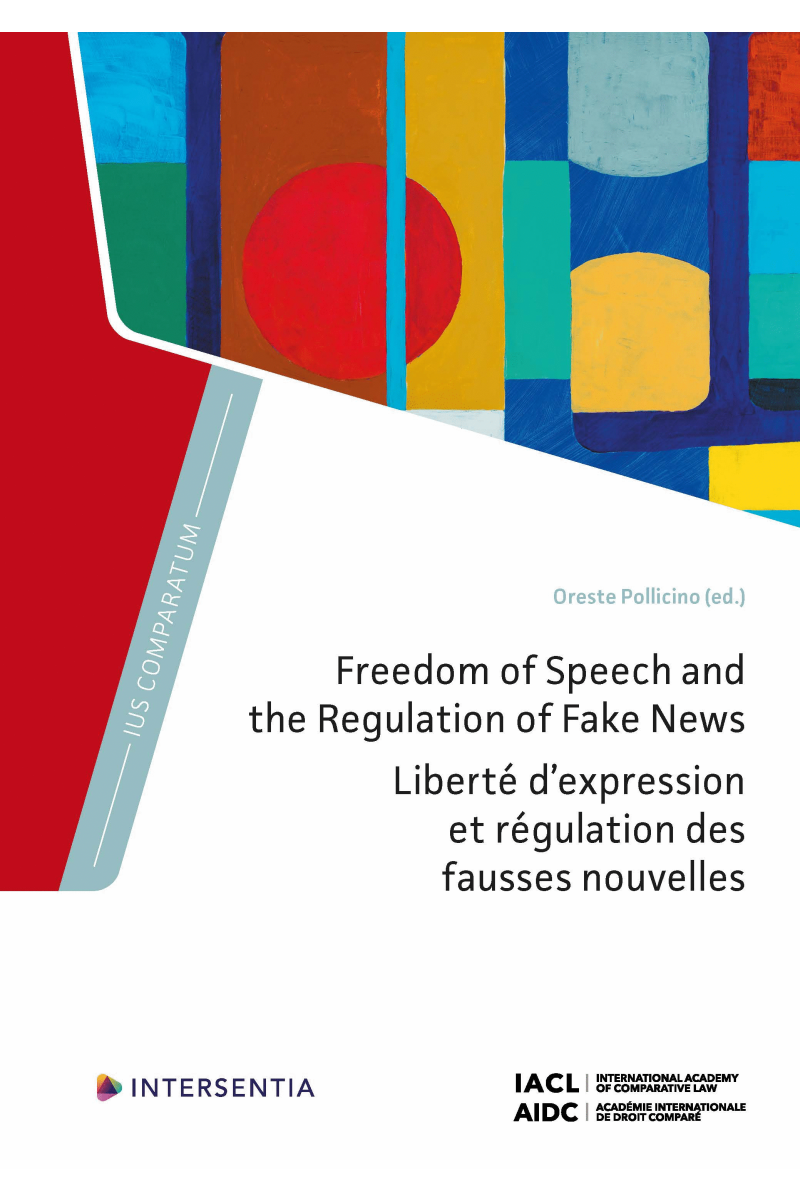 maestro
mastercard
visa
maestro
mastercard
visa

Freedom of Speech and the Regulation of Fake News

Disinformation is not a product of the digital age. False news has always circulated across society, as demonstrated by the case of the ‘Great Moon Hoax’ in 1835. However, the circulation of false and inaccurate content on the Internet, and particularly on social media, has amplified, as is usually the case in cyberspace, the phenomenon. Indeed, growing concern about potential risks for democratic discourse and processes has emerged in recent years. For example, recent conflicts, particularly in Ukraine, have underlined how disinformation is far beyond only a concern for individual freedoms or national borders.
Disinformation is primarily connected with the right to freedom of speech, thus raising questions about the tolerance of false content in a democratic society, and consequently what degree of limits on freedom of speech can be constitutionally justified. Primarily, the question is not whether regulating disinformation influences freedom of speech but the reasons for considering its regulation as a challenge for freedom of speech. Therefore, it should be considered that the response to disinformation entails dealing with the degree of protection given to free speech. This is a multifaceted question since each legal system adopts different paradigms of protection even where they share a common liberal matrix. In other words, it is a matter of understanding the limits of freedom of speech and the balancing of this right with legitimate interests or the safeguarding of other constitutional rights.
Moreover, the digital environment has underlined how the marketplace of ideas is not free, but is shaped by public and private influences. The concept of disinformation is not only influenced by public actors, but also by other actors governing online speech. One inevitable element of the discussion is the key role of private parties, particularly online platforms, within the current news and information ecosystem. The process of content moderation contributes to setting standards for tackling disinformation, increasing the power of online platforms to make decisions on constitutional conflicting interests.
Within this framework, this book provides a comparative constitutional analysis of the relationship between freedom of speech and disinformation. By examining reports which focus on Belgium, Canada, Croatia, the European Union, Finland, France, Germany, Hungary, Italy, Japan, Macau, Romania, Turkey, the United Kingdom, the United States of America and Vietnam, this book analyses the constitutional challenges of balancing freedom of speech and falsehood, and the approaches adopted to deal with the spread of disinformation.
ORESTE POLLICINO is a Full Professor of Constitutional Law at the University of Bocconi and a Member of the Executive Board of the European Union Agency for Fundamental Rights in Vienna. He is the author of Judicial Protection of Fundamental Rights on the Internet. A Road Towards Digital Constitutionalism? (Hart Publishing, 2021), co-author of Internet Law and Protection of Fundamental Rights (Bocconi University Press, 2022) and co-editor of The Cambridge Handbook of Information Technology, Life Sciences and Human Rights (Cambridge University Press, 2022), amongst others.
With the contribution of Giuseppe B. Abbamonte (European Commission), Elke Cloots (University of Antwerp, Belgium), Peter Coe (University of Birmingham, United Kingdom), Nicolae-Dragos Costescu (University of Bucharest, Romania), Tat Dung Dang (Hochiminh City University of Law, Vietnam), Paula Gori (European University Institute), Leslie Gielow Jacobs (University of the Pacific, United States of America), Sarah Lambrecht (Constitutional Court of Belgium; University of Antwerp, Belgium), Elena Lazar (University of Bucharest, Romania), Michela Manetti (University of Siena, Italy), Eijiro Mizutani (Kansai University, Japan), Erdem Iker Multu (Hacettepe University, Türkiye), Riku Neuvonen (Tampere University, Finland), Rostam J. Neuwirth (University of Macau, Macao (China)), Oreste Pollicino (University of Bocconi, Italy), Gábor Polyák (Eötvös Loránd University, Hungary), Dalida Rittossa (University of Rijeka, Croatia), Marissabell Škorić (University of Rijeka, Croatia), Pauline Türk (Université Côte d'Azur, France), Onur Uraz (Hacettepe University, Türkiye), Eva Ellen Wagner (Johannes Gutenberg University Mainz, Germany) and Li Yi (University of Macau, Macao (China)).
| Type of product | Book |
|---|---|
| Format | Hardback |
| EAN / ISSN | 9781839703560 / 9781839704185 |
| Series name | Ius Comparatum |
| Weight | 1000 g |
| Status | Available |
| Number of pages | xxvi + 608 p. |
| Access to exercice | No |
| Publisher | Larcier |
| Language | English |
| Publication Date | Aug 18, 2023 |
| Available on Strada Belgique | No |
| Available on Strada Europe | No |
| Available on Strada Luxembourg | No |
Downloads
- Table of Contents and Front Matter
Oreste Pollicino - GENERAL REPORT Freedom of Speech and the Regulation of Fake News
Oreste Pollicino - Belgium
Elke Cloots, Sarah Lambrecht - Canada
- Croatia
- European Union
- Finland
- France
- Germany
- Hungary
- Italy
- Japan
- Macao SAR (China)
Rostam Neuwirth - Romania
- Türkiye
- United Kingdom
Peter Coe - United States
- Vietnam
- Appendix Questionnaire
Oreste Pollicino - Index
Oreste Pollicino